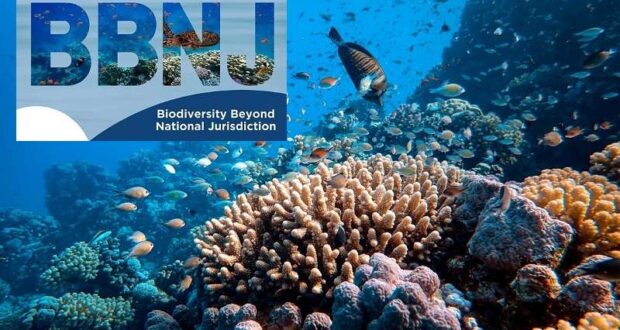Newdelhi:8/7/24:The Union Cabinet, chaired by Prime Minister Narendra Modi, has approved India to sign the Biodiversity Beyond National Jurisdiction (BBNJ) Agreement. This landmark decision marks a significant step towards the conservation and sustainable utilisation of marine biological diversity in areas beyond national jurisdiction. Often referred to as the ‘High Seas’, areas beyond national jurisdiction are the global common oceans open for internationally lawful purposes such as navigation, overflight, laying submarine cables and pipelines, etc. The Ministry of Earth Sciences will spearhead the country’s implementation of the BBNJ Agreement.
Dr Jitendra Singh, Honourable Minister of State (Independent Charge) of the Ministry of Earth Sciences and Ministry of Science and Technology; Minister of State in the Prime Minister’s Office, Ministry of Personnel, Public Grievances and Pensions, Department of Atomic Energy; and Department of Space, said “India remains committed and proactive to the global cause of environmental conservation and sustainable development. We will be signing (the BBNJ Agreement) and are promising to ratify it through the necessary legislative processes subsequently”. The government is aligned to scientific progress, strengthening international collaboration, and promoting governance, transparency, accountability, and the rule of law”, he added. The Cabinet meeting was held on July 02, 2024.
The BBNJ Agreement, or the ‘High Seas Treaty’, is an international treaty under the United Nations Convention on the Law of the Sea (UNCLOS). It aims to address the growing concerns over the long-term protection of marine biodiversity in the high seas. It sets precise mechanisms for the sustainable use of marine biological diversity through international cooperation and coordination. Parties cannot claim or exercise sovereign rights over marine resources derived from the high seas and ensure fair and equitable sharing of benefits. It follows an inclusive, integrated, ecosystem-centric approach based on the precautionary principle and promotes using traditional knowledge and the best available scientific knowledge. It helps minimise impacts on the marine environment through area-based management tools and establishes rules for conducting environmental impact assessments. It would also contribute to achieving several SDGs, particularly SDG14 (Life Below Water).
Dr M Ravichandran, Secretary, MoES, elaborating on the benefits for India, said, “The BBNJ Agreement allows us to enhance our strategic presence in areas beyond our EEZ (Exclusive Economic Zone), which is very promising. In addition to shared monetary benefits, it will further strengthen our marine conservation efforts and collaborations, open newer avenues for scientific research and development, access to samples, sequences, and information, capacity building and technology transfer, etc., not just for us but for the benefit of the entire humankind”. He added that India signing the BBNJ Agreement is another crucial step towards ensuring that our oceans remain healthy and resilient.
The BBNJ Agreement will be the third implementation agreement under UNCLOS if and when it enters into force, alongside its sister implementation agreements: the 1994 Part XI Implementation Agreement (which addresses the exploration and extraction of mineral resources in the international seabed area) and the 1995 UN Fish Stocks Agreement (which addresses the conservation and management of straddling and highly migratory fish stocks).
UNCLOS was adopted on December 10, 1982, and came into force on November 16, 1994. It is crucial for the environmental protection of the seas and addressing maritime boundaries, rights to marine resources, and dispute resolution. It establishes the International Seabed Authority to regulate mining and related activities on the ocean floor beyond national jurisdiction. As of today, more than 160 countries have ratified UNCLOS. It is vital to maintaining order, equity, and fairness in using the world’s oceans. The BBNJ Agreement was agreed upon in March 2023 and is open for signature for two years starting September 2023. It will be an international legally binding treaty after it enters force 120 days after the 60th ratification, acceptance, approval or accession. As of June 2024, 91 countries have signed the BBNJ Agreement, and eight Parties have ratified it.
 Odisha news today, Latest Oriya News Bhubaneswar Online Odia news Portal
Odisha news today, Latest Oriya News Bhubaneswar Online Odia news Portal




